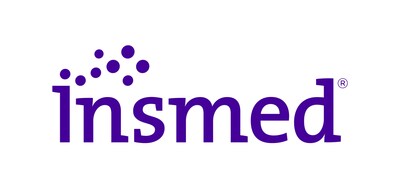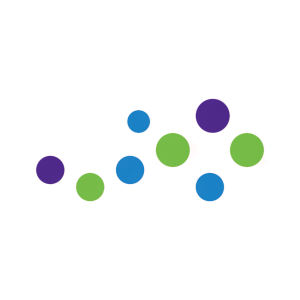European Commission Approves BRINSUPRI™ (brensocatib) as the First and Only Treatment Approved for Non-Cystic Fibrosis Bronchiectasis in the European Union
Rhea-AI Summary
Insmed (Nasdaq: INSM) announced that the European Commission approved BRINSUPRI (brensocatib) 25 mg on November 18, 2025, as the first and only treatment for non-cystic fibrosis bronchiectasis (NCFB) in the EU for patients 12+ with ≥2 exacerbations in the prior 12 months.
Approval was granted after EMA accelerated assessment and is supported by Phase 3 ASPEN and Phase 2 WILLOW data showing a 19.4% reduction in annual exacerbation rate and statistically smaller FEV1 decline at week 52. EU access efforts begin in early 2026; U.K. and Japan reviews are ongoing.
Positive
- First approved therapy for NCFB in the EU
- ASPEN: 19.4% reduction in annual exacerbation rate
- Statistically smaller FEV1 decline at week 52
- Reviewed under EMA accelerated assessment
Negative
- Approval limited to patients ≥12 with ≥2 exacerbations in prior year
- Most frequent adverse reaction: headache 9.2%
- Other adverse reactions include hyperkeratosis 5.9% and dermatitis 4.2%
- EU access expected to start only in early 2026
News Market Reaction – INSM
On the day this news was published, INSM gained 2.14%, reflecting a moderate positive market reaction.
Data tracked by StockTitan Argus on the day of publication.
— Non-Cystic Fibrosis Bronchiectasis (NCFB) Is a Serious, Progressive Lung Disease That Can Lead to Permanent Lung Damage —
— BRINSUPRI Is a First-in-Disease, First-in-Class DPP1 Inhibitor Targeting Neutrophilic Inflammation —
— BRINSUPRI Was Reviewed Under EMA's Accelerated Assessment Pathway as It Is Considered of Major Interest for Public Health —
NCFB is a chronic and progressive disease that can lead to permanent lung damage and lung function decline. Unlike other respiratory diseases that are characterized by airway narrowing, bronchiectasis causes airways to permanently widen, making it harder to clear mucus and bacteria, leading to persistent inflammation and infection. A hallmark of bronchiectasis is frequent exacerbations, or flares, when symptoms—such as coughing, increased mucus, shortness of breath and fatigue—worsen. An estimated 600,000 people in the EU are diagnosed with NCFB, with approximately two million additional people potentially undiagnosed.
"Living with non-cystic fibrosis bronchiectasis profoundly alters daily life, taking a toll on both physical health and emotional well-being," said
This approval is based on a comprehensive scientific evaluation of the marketing authorization application, including data from the Phase 3 ASPEN and Phase 2 WILLOW studies, which were both published in the New England Journal of Medicine. In
"At Insmed, our mission has always been to bring new therapies to underserved patient communities. With BRINSUPRI, we now have the first treatment for non-cystic fibrosis bronchiectasis approved in the European Union—a historically overlooked population with long-standing unmet medical needs," said Martina Flammer, M.D., MBA, Chief Medical Officer of Insmed. "The accelerated approval reflects the strength of the data and the potential to become the new standard of care for treating patients with non-cystic fibrosis bronchiectasis who had at least two prior exacerbations. We are grateful to the patients, clinicians and partners who made this milestone possible."
The EC approval follows a positive opinion from the Committee for Medicinal Products for Human Use of the European Medicines Agency (EMA) on 16 October 2025. Insmed will engage with authorities across the EU to secure access to BRINSUPRI for eligible patients beginning in early 2026.
Applications for brensocatib are currently under review with the Medicines and Healthcare products Regulatory Agency in the
About BRINSUPRI (brensocatib)
BRINSUPRI (brensocatib) is a small molecule, once-daily, oral, reversible inhibitor of dipeptidyl peptidase 1 (DPP1). BRINSUPRI (brensocatib 10 mg and 25 mg tablets) is indicated in the United States for the treatment of non-cystic fibrosis bronchiectasis (NCFB) in adult and pediatric patients 12 years of age or older. In the European Union, BRINSUPRI (brensocatib 25 mg tablets) is approved for the treatment of NCFB in patients 12 years of age and older with two or more exacerbations in the prior 12 months.
Brensocatib is designed to inhibit the activation of enzymes (neutrophil serine proteases) in neutrophils that are key drivers of chronic airway inflammation in NCFB. Brensocatib is also being evaluated for its potential role in other neutrophil-mediated diseases.
About
About WILLOW
WILLOW was a randomized, double-blind, placebo-controlled, parallel-group, multi-center, multi-national, Phase 2 study to assess the efficacy, safety and tolerability, and pharmacokinetics of brensocatib administered once daily for 24 weeks in patients with non-cystic fibrosis bronchiectasis (NCFB). WILLOW was conducted at 116 sites and enrolled 256 adult patients diagnosed with NCFB who had at least two documented pulmonary exacerbations in the 12 months prior to screening. Patients were randomized 1:1:1 to receive either 10 mg or 25 mg of brensocatib or matching placebo. The primary efficacy endpoint was the time to first pulmonary exacerbation over the 24-week treatment period in the brensocatib arms compared to the placebo arm.
About Bronchiectasis
NCFB is a chronic, progressive, and inflammatory lung disease that causes the airways to become permanently widened due to a cycle of infection, inflammation, lung tissue damage, and mucociliary dysfunction. Patients with NCFB often experience repeated exacerbations, requiring antibiotic therapy and/or hospitalizations. Symptoms include chronic cough, excessive sputum production, shortness of breath, fatigue, and repeated respiratory infections, which can worsen the underlying disease. An estimated 600,000 people in the EU are diagnosed with NCFB, with approximately two million additional people potentially undiagnosed.
BRINSUPRI™ (brensocatib)
Indication in the
BRINSUPRI is indicated for the treatment of non-cystic fibrosis bronchiectasis (NCFB) in adult and pediatric patients 12 years of age and older.
Important Safety Information in the
WARNINGS AND PRECAUTIONS
Dermatologic Adverse Reactions
Treatment with BRINSUPRI is associated with an increase in dermatologic adverse reactions, including rash, dry skin, and hyperkeratosis. Monitor patients for development of new rashes or skin conditions and refer patients to a dermatologist for evaluation of new dermatologic findings.
Gingival and Periodontal Adverse Reactions
Treatment with BRINSUPRI is associated with an increase in gingival and periodontal adverse reactions. Refer patients to dental care services for regular dental checkups while taking BRINSUPRI. Advise patients to perform routine dental hygiene.
Live Attenuated Vaccines
It is unknown whether administration of live attenuated vaccines during BRINSUPRI treatment will affect the safety or effectiveness of these vaccines. The use of live attenuated vaccines should be avoided in patients receiving BRINSUPRI.
ADVERSE REACTIONS
The most common adverse reactions ≥
Less Common Adverse Reactions
Liver Function Test Elevations
In
Skin Cancers
In
Alopecia
In
USE IN SPECIFIC POPULATIONS
Pregnancy: There are no clinical data on the use of BRINSUPRI in pregnant women.
Lactation: There is no information regarding the presence of BRINSUPRI and/or its metabolite(s) in human milk, the effects on the breastfed infant, or the effects on milk production. The developmental and health benefits of breastfeeding should be considered along with the mother's clinical need for BRINSUPRI and any potential adverse effects on the breastfed child from BRINSUPRI or from the underlying maternal condition.
Pediatric use: The safety and effectiveness of BRINSUPRI for the treatment of NCFB have been established in pediatric patients aged 12 years and older. Common adverse reactions in pediatric patients aged 12 years and older enrolled in
Please see full US Prescribing Information.
About Insmed
Insmed Incorporated is a people-first global biopharmaceutical company striving to deliver first- and best-in-class therapies to transform the lives of patients facing serious diseases. The Company is advancing a diverse portfolio of approved and mid- to late-stage investigational medicines as well as cutting-edge drug discovery focused on serving patient communities where the need is greatest. Insmed's most advanced programs are in pulmonary and inflammatory conditions, including two approved therapies to treat chronic, debilitating lung diseases. The Company's early-stage programs encompass a wide range of technologies and modalities, including gene therapy, AI-driven protein engineering, protein manufacturing, RNA end-joining, and synthetic rescue.
Headquartered in
Forward-looking Statements
This press release contains forward-looking statements that involve substantial risks and uncertainties. "Forward-looking statements," as that term is defined in the Private Securities Litigation Reform Act of 1995, are statements that are not historical facts and involve a number of risks and uncertainties. Words herein such as "may," "will," "should," "could," "would," "expects," "plans," "anticipates," "believes," "estimates," "projects," "predicts," "intends," "potential," "continues," and similar expressions (as well as other words or expressions referencing future events, conditions or circumstances) may identify forward-looking statements.
The forward-looking statements in this press release are based upon the Company's current expectations and beliefs, and involve known and unknown risks, uncertainties and other factors, which may cause the Company's actual results, performance and achievements and the timing of certain events to differ materially from the results, performance, achievements or timings discussed, projected, anticipated or indicated in any forward-looking statements. Such risks, uncertainties and other factors include, among others, the following: failure to successfully commercialize BRINSUPRI in the
The Company may not actually achieve the results, plans, intentions or expectations indicated by the Company's forward-looking statements because, by their nature, forward-looking statements involve risks and uncertainties because they relate to events and depend on circumstances that may or may not occur in the future. For additional information about the risks and uncertainties that may affect the Company's business, please see the factors discussed in Item 1A, "Risk Factors," in the Company's Annual Report on Form 10-K for the year ended December 31, 2024 and any subsequent Company filings with the Securities and Exchange Commission (SEC).
The Company cautions readers not to place undue reliance on any such forward-looking statements, which speak only as of the date of this press release. The Company disclaims any obligation, except as specifically required by law and the rules of the SEC, to publicly update or revise any such statements to reflect any change in expectations or in events, conditions or circumstances on which any such statements may be based, or that may affect the likelihood that actual results will differ from those set forth in the forward-looking statements.
Contact:
Investors
Bryan Dunn
Vice President, Investor Relations
(646) 812-4030
investor.relations@insmed.com
Media
Claire Mulhearn
Vice President, Corporate Communications
(862) 842-6819
media@insmed.com
![]() View original content to download multimedia:https://www.prnewswire.com/news-releases/european-commission-approves-brinsupri-brensocatib-as-the-first-and-only-treatment-approved-for-non-cystic-fibrosis-bronchiectasis-in-the-european-union-302618805.html
View original content to download multimedia:https://www.prnewswire.com/news-releases/european-commission-approves-brinsupri-brensocatib-as-the-first-and-only-treatment-approved-for-non-cystic-fibrosis-bronchiectasis-in-the-european-union-302618805.html
SOURCE Insmed Incorporated








